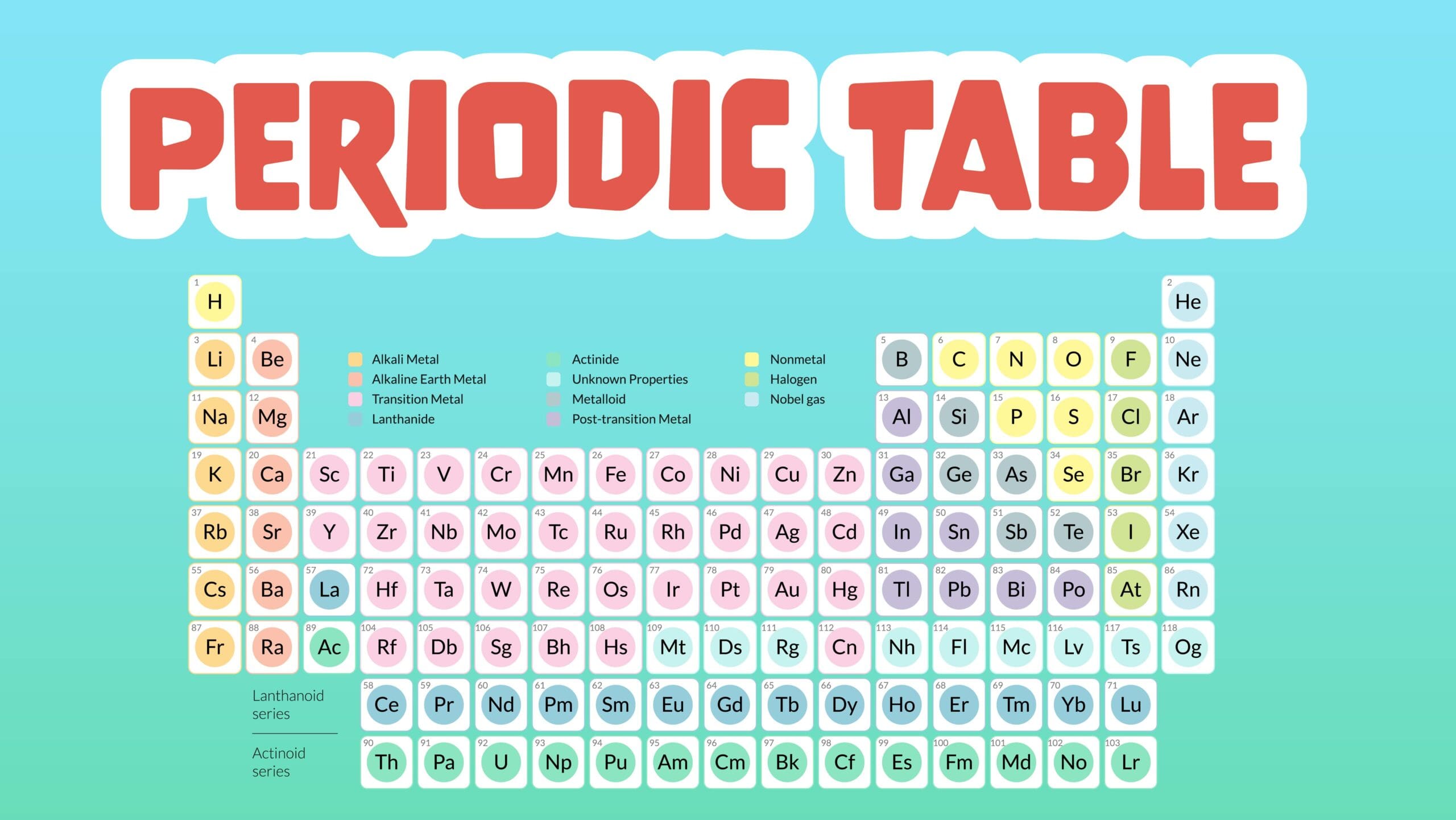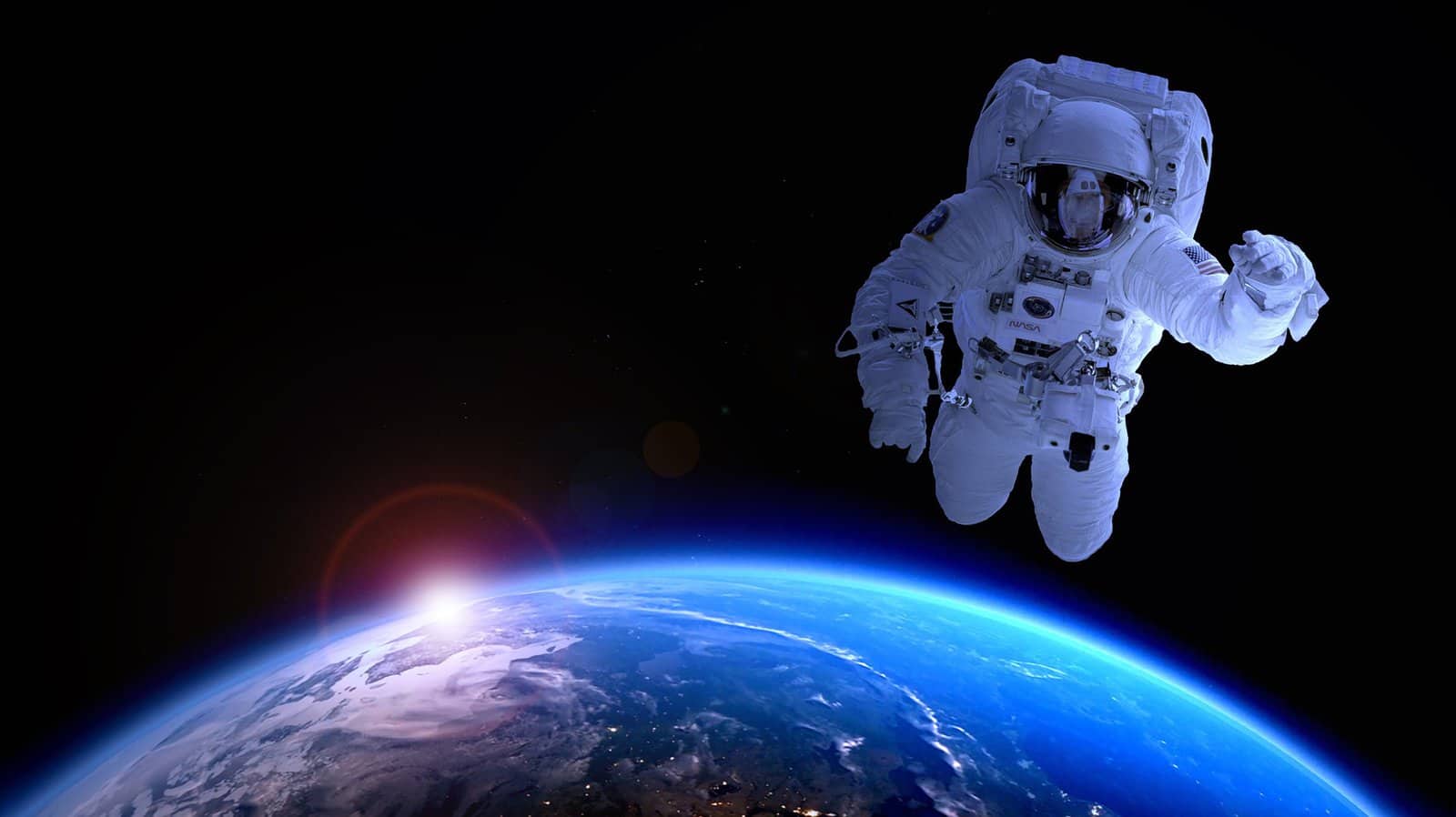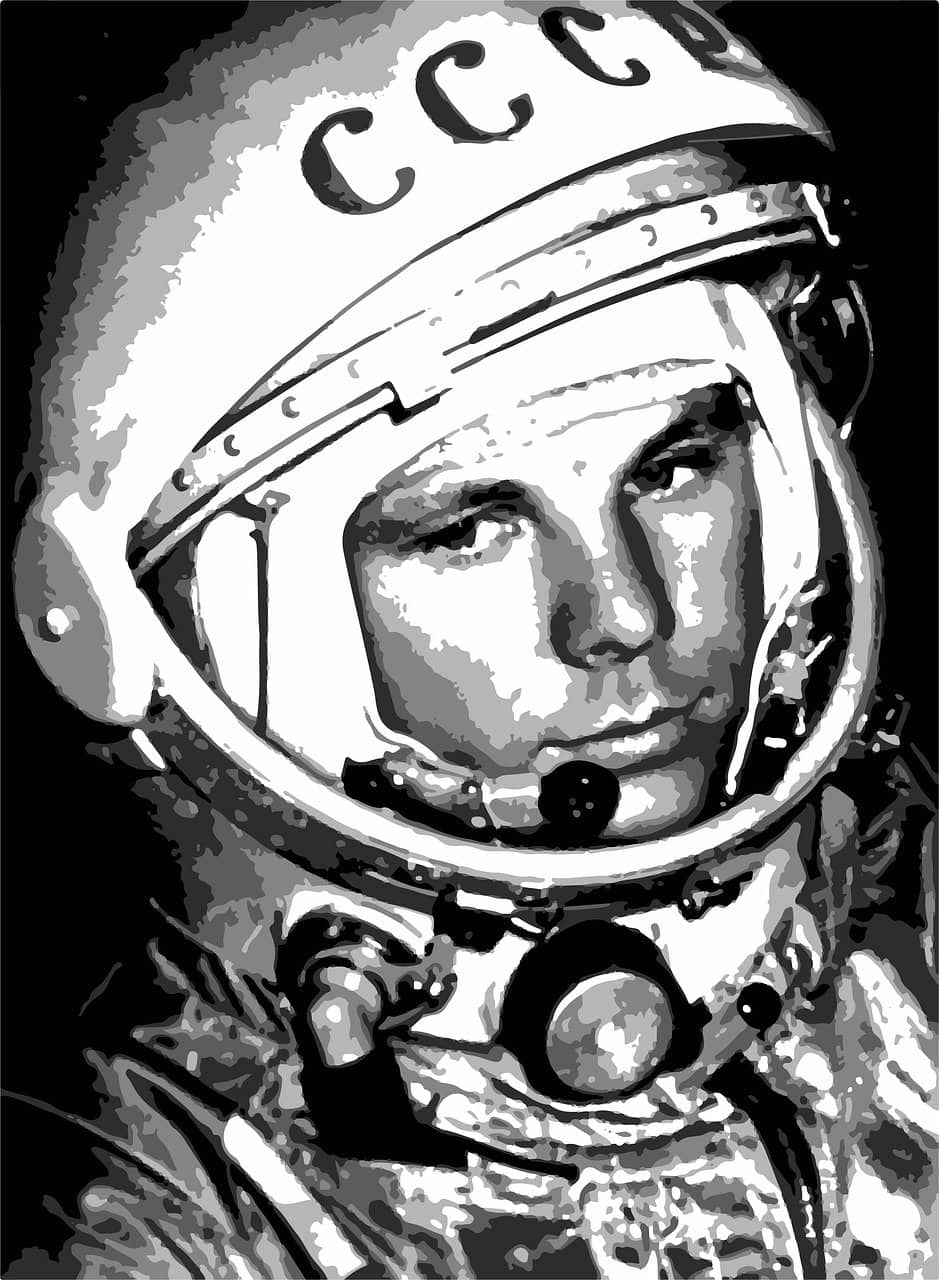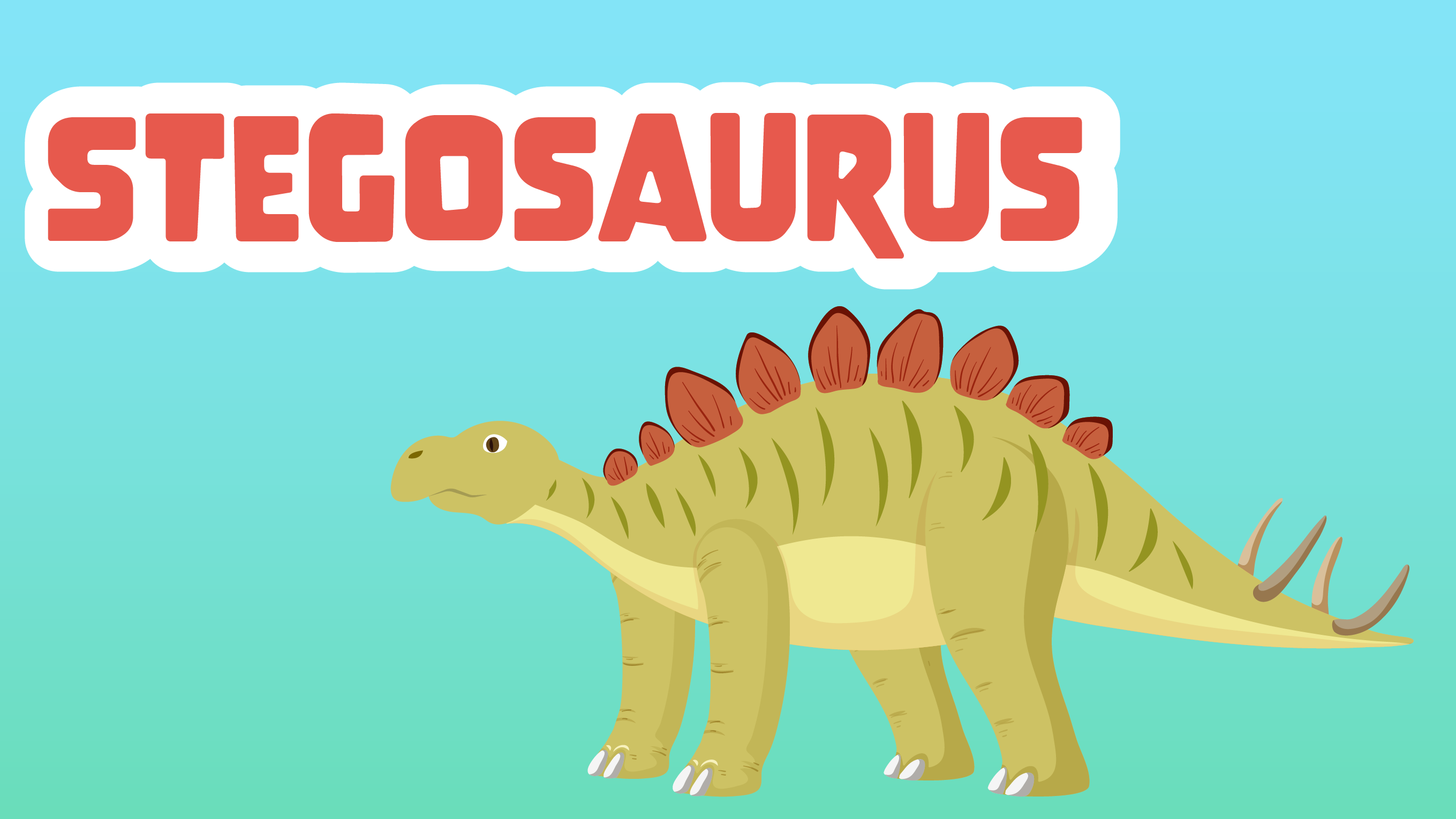
Who Were the First Man and the First Woman in Space? Quick Facts and More!
We human beings have been venturing into space since 1957 with the launching of the first artificial satellite. Since then, astronauts have traveled to the moon, probes have explored the solar system, and instruments in space have discovered thousands of planets around other stars. Let’s find out who the first man in space was and who the first woman was.

First Man in Space
The first man in space was the Russian astronaut Yuri Gagarin. He was a fighter pilot, and he was promoted several times for his contributions. He held the title of Hero of the Soviet Union.
Biography
Yuri Alekseyevich Gagarin was born in 1934, near Gzhatsk, Russia. He was raised on a collective farm. In 1951 Gagarin earned a position as an apprentice at a technical school in Saratov. He was also selected for further training at a technical high school in Saratov. There, he joined the flight club, and learned to fly a light aircraft. He was passionate about flying from an early age, and he was interested in space and planets.
In 1955, after finishing his technical schooling, he joined the Soviet Air Force and graduated with honors from the Soviet Air Force Academy in 1957. Soon afterward, he became a military fighter pilot.
Mission
Gagarin kept physically fit throughout his life, and was a good sportsman. By 1959, he had been selected for astronaut’s training as part of the first group of the Soviet Union’s astronauts. In 1960, after the search and selection process, Yuri Gagarin was selected with 19 other space explorers for the Soviet space program. They were all tested and they underwent training for the upcoming flight. Finally, Yuri Gagarin was selected for the first launch because of his performance in training, as well as his physical fitness.
On 12 April 1961, Gagarin became the first man to travel into space. Traveling in the Vostok 1 capsule, Gagarin completed one orbit of Earth in around 1 hour 29 minutes.
After the Flight
After the flight, Gagarin became a world famous celebrity. He was awarded many medals and titles, including Hero of the Soviet Union. He toured in many places like Italy, the United Kingdom, Germany, Canada, and Japan. He did this to promote the Soviet Union’s achievements.
In 1962, he began serving as a deputy to the Supreme Soviet of the Soviet Union. He later became Lieutenant Colonel of the Soviet Air Force. Then, in 1963, he got the rank of Colonel of the Soviet Air Force. Soviet people tried to keep him away from any flights, being worried of losing their hero in an accident. So, Gagarin was banned from training for and helping out in further spaceflights.
Death
After some time, Gagarin became deputy training director of the Star City cosmonaut training base. At the same time, he began to re-join as a fighter pilot.
Quick Facts
- Gagarin was only 1.57 metres tall, which was an advantage in the small Vostok cockpit.
- Gagarin was promoted from a lieutenant to a major right after landing.
- He spent about seven years working on designing a reusable spacecraft for the Soviet Union.
- Gagarin has a crater on the moon and an asteroid named after him.
- The Vostok 1 mission was a major milestone during the Space Race between the Soviet Union and the USA.

First Woman in Space
Valentina Tereshkova was the first woman to travel into space. She was a Soviet astronaut. She later played an active role in Soviet and Russian politics. For her contributions Tereshkova was named a Hero of the Soviet Union.
Biography
Valentina Vladimirovna Tereshkova was born on 6 March 1937. She is a Soviet retired cosmonaut. She was the first woman to fly in space, aboard Vostok 6, one of Vostok rockets. Her father was killed during World War II, so her early life was difficult. Tereshkova started school when she was 10 years old. She worked at a tire factory, and later at a textile mill. She had been interested in parachuting from a young age. She trained in skydiving at the local Aeroclub, and she made her first jump in 1959 at age 22. She became a member of the Communist Party in 1962.
Mission
Valentina’s expertise in parachute jumping is the reason she was selected as a cosmonaut. After the flight of Yuri Gagarin in 1961, Nikolai Kamanin, director of cosmonaut training, decided that the first woman in space must be a Soviet. By January 1962, the All-Union Voluntary Society for Assistance to the Army, Air Force and Navy (DOSAAF) had selected 400 candidates for consideration. On 16 February 1962, Tereshkova was selected along with four other candidates to join the female cosmonaut corps. Of those five women, only Valentina Tereshkova completed a space mission.
Vostok 6 was the final Vostok flight and was launched two days after Vostok 5 which carried Bykovsky into a five-day mission. Tereshkova managed to maintain a flight log, and she took photographs of the horizon, which were later used to identify aerosol layers within the atmosphere. Although she experienced nausea and physical discomfort for much of the flight, Tereshkova orbited the Earth 48 times and spent 2 days, 22 hours, and 50 mins in space.
After the Flight
After her spaceflight, Tereshkova became a national and international role model. She received telegrams from around the world that express the impact that she had on other countries, outside the Soviet Union. Women were particularly excited about her flight. In front of the thousands in attendance, the Premier announced that she was awarded the Hero of the Soviet Union medal.
Quick Facts
- Valentina Tereshkova is not only the first woman in space, but also the youngest woman to ever travel into space. She was only 26 when she made her flight.
- She is the only woman to complete a solo space mission.
- With a single flight, she logged more flight time than the combined times of all American astronauts who had flown before that date.
- She never flew again, but she became a spokesperson for the Soviet Union.
- Her mission was used to continue the medical studies on humans in spaceflight and offered comparative data of the effects of space travel on women.


Leave a Reply